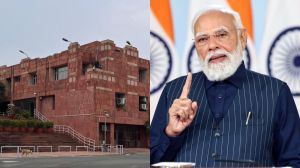The Independence Day celebrations might be over. The responsibility has just begun
India, the oldest continuing civilisation, now the largest democracy in the world, is not great because she is perfect, but because she keeps working at her promise
It is two days since the tricolour soared above our heads, two days since schoolchildren sang the anthem with voices bright as morning. Two days since we stood still, saluted, remembered.
The bunting still clings to balconies, a little wind-frayed. The paper flags have curled at the edges. The brass bands have gone quiet. Life, as it always does, has returned to the business of bills and buses.
And yet — in the quiet after the parade, there is still a question in the air. It does not shout; it lingers.
Now that we have celebrated freedom, what will we do to keep it?
It is tempting to think of 15th August as a ceremony, a once-a-year ritual. But democracy does not work in annual instalments. It is not a festival to be taken out, enjoyed, and stored away until next year. It is a constant practice, a daily duty.
Two days later is when democracy truly begins — because the speeches are over, the cameras are gone, and the work is ours alone.
The work of watching.
The work of questioning.
The work of caring enough to protect what we have inherited.
In Sipahi ka Marsiya, Faiz Ahmed Faiz addresses a fallen soldier:
“Uṭho ab māṭī se uṭho”
Rise now from the dust.
He was writing in Pakistan, in an era when speaking against power came with a heavy price. Faiz knew that dust is not only the soil that covers the dead; it is also the dust of disinterest that settles when citizens stop paying attention.
Faiz paid with his liberty for his refusal to stay silent. He was jailed, exiled, censored — but never broken. He understood that the soldier is not always one who fights at the border; in a democracy, the soldier is anyone who refuses to let freedom wither unnoticed.
We are all that soldier.
We are all sepahis, sentries, watchmen at the gates of liberty.
Our duty posts are not on military frontiers, but in classrooms where the young are taught to think, in courtrooms where justice is weighed, in newsrooms where truth is chased, in polling booths where power changes hands.
This is not just India’s truth. It is democracy’s truth — from America to France, from the world’s oldest republics to the newest parliaments.
In Washington, the marble halls stand because citizens still show up to vote. In Paris, the flame under the Arc de Triomphe burns because people still guard the right to speak, assemble, and disagree. And in India — the world’s oldest continuing civilisation, the largest democracy on earth — the tricolour flies because 1.4 billion of us, in all our diversity, choose to keep it flying.
This is the beauty of democracy: it belongs to everyone, but only survives if everyone tends it.
Faiz’s Bol, ke lab āzād haiṅ tere — Speak, for your lips are free — carries the same truth across decades and continents:
“Bol, ke lab āzād haiṅ tere
Bol, zubāṅ ab tak terī hai”
Speak, for your lips are free;
Speak, your tongue is still your own.
It is not enough that freedom exists; it must be exercised. A muscle unused will weaken; a voice unsaid will fade. In a democracy, the right to speak comes with the responsibility to use that speech to defend truth, dignity, and equality.
And this responsibility is not limited to India. In America, citizens guard their First Amendment. In France, they protect liberté, égalité, fraternité. In every democracy, old or young, the principles may differ in wording, but they share one heartbeat: vigilance.
The threats to democracy are not always loud. They arrive quietly, in whispers and small compromises. They slip into the cracks: a truth left unspoken here, an injustice excused there.
They come disguised as convenience: Don’t question — it will slow things down.
They come disguised as patriotism: Don’t criticise — it will weaken the nation.
They come disguised as inevitability: The system will take care of itself.
But a democracy without questions is like a garden without sunlight. It may look orderly for a time, but beneath the surface, it will wither.
“Jāgo mere lāl, ab jāgo mere lāl”
Awaken, my beloved, awaken now.
The lāl — the red rose — in Faiz’s poem is the fallen sepahi. But in a living democracy, it is each one of us. Awakening is not just becoming aware of injustice; it is choosing to act against it.
Our watchtowers are vigilance, our weapons are questions, our uniform is conscience. The soldier of democracy carries no rifle — only the readiness to defend what is right, even when it is inconvenient, even when it is unpopular.
To respect democracy is as important as to defend it. Respect means accepting that the processes are often slow, messy, and frustrating — and still choosing to engage in them. It means understanding that the equal weight of every vote is not just a principle; it is the foundation stone of freedom.
Respect also means recognising the privilege we hold. Billions of people in the world cannot speak openly against power without fear of reprisal. Billions cannot change their leaders at the ballot box. For us, that privilege is so normal we forget it is extraordinary.
It is not jingoism to say this — it is gratitude. It is pride without arrogance, patriotism without hostility. India’s strength lies in her plurality: her ability to house countless tongues, creeds, and opinions under one flag, one constitution, one restless, questioning spirit.
“Sūnā tumrā rāj paṛā hai, dekho kitnā kāj paṛā hai”
Your kingdom lies desolate, see how much work is left undone.
Seventy-eight years after independence, our kingdom is still in the making. There are rivers still unclean, villages still unlit, classrooms still unfilled, voices still unheard. This is not failure — it is the truth of every democracy. No democracy is finished; it is always under construction.
The blueprint is drawn in ideals; the bricks are laid by citizens.
And this is as true in Delhi as in Washington, as in Paris. Democracies are built by those who show up — to vote, to volunteer, to bear witness. They are protected by those who pay attention.
Faiz’s life is a reminder that attention has a price, and that the price is worth paying. His poetry did not survive because it was safe; it survived because it was brave. He lived the reality that Bol, ke lab āzād hai tere is not just an invitation — it is a warning: speak while you can, for there may come a day when you cannot.
For citizens everywhere, that warning is evergreen.
“Haṭ na karo māṭī se uṭho”
Do not resist — rise from the earth.
Rise from the dust of cynicism, the dirt of apathy. Rise because no one else will stand guard if you do not. Rise because the flame of freedom, whether in Delhi, Washington, or Paris, needs tending.
Two days after Independence Day, the celebrations are over — and that is when our service begins. The sentry’s watch is not seasonal. The sepahi’s post is not temporary.
In India, that service means cherishing our plurality — our ability to argue, to disagree, to dissent without dissolving the union. In America, it means defending civil liberties even for those we dislike. In France, it means guarding the balance of liberty, equality, and fraternity. In every democracy, it means knowing that the system survives only because its citizens choose to keep it alive.
India, the oldest continuing civilisation, now the largest democracy in the world, is not great because she is perfect, but because she keeps working at her promise. Our strength lies not in having no divisions, but in having the ability to live with them — to let the argument be loud and the flag fly higher still.
We are not fragile because we question. We are strong because we do.
That is the sepahi’s oath in a democracy. To be on guard not against enemies at the gate, but against the erosion within. To protect the rights of others as fiercely as our own. To know that every freedom we keep depends on the freedoms we defend for those we disagree with.
Two days after freedom, the crowd has gone home. The music has faded. The cameras are off. The bunting will be packed away.
But the watchman is still needed at the gate.
The soldier is still needed at the wall.
The sepahi is still needed in the square.
And the sepahi is you.
- 01
- 02
- 03
- 04
- 05































